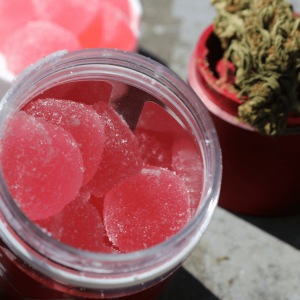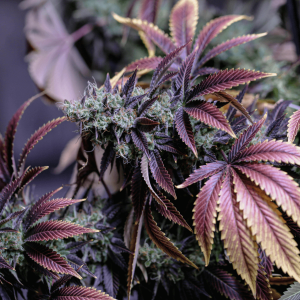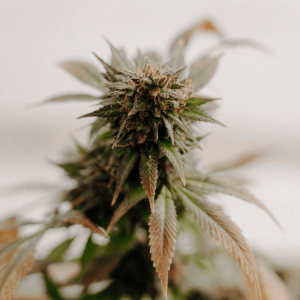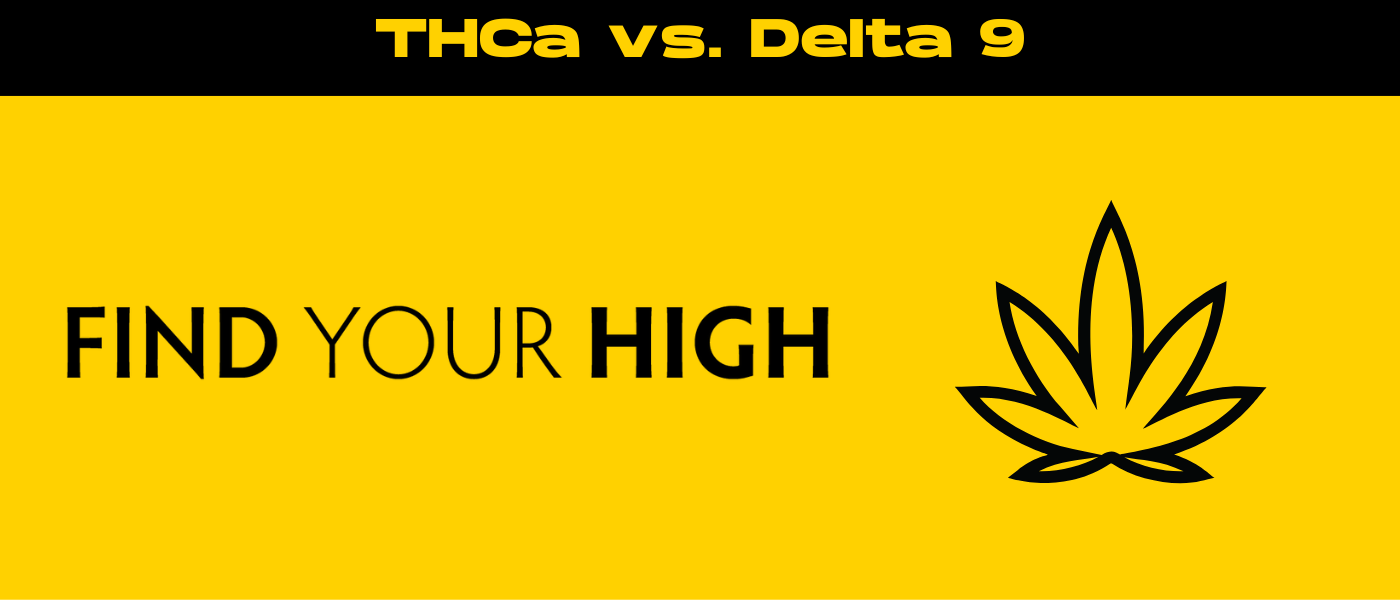Whether you’re a seasoned cannabis enthusiast or avid hemp user, you may find yourself in the middle of the ‘THCa vs Delta 9 THC’ debate.
But here’s the deal: both are cannabinoids… and not as different as you may think. To catch you up to speed, cannabinoids are the chemical compounds found in cannabis that are pivotal to its effects and potential therapeutic benefits.
The most famous cannabinoid of all is Tetrahydrocannabinol (THC), which stands out as the primary psychoactive compound found within cannabis plants. However, THC is not a single substance but comes in various forms, including THCa, its non-psychoactive acidic precursor, and Delta 9 THC, the compound known for inducing the ‘high.’
This blog will dive into the science behind these variants, exploring their chemical differences, legal status, effects on the human body, and their implications for both medical cannabis users and recreational consumers.
Ready to begin?
What is THCa?
THCa, or tetrahydrocannabinolic acid, is a non-psychoactive cannabinoid found primarily in raw and live cannabis. As the precursor to Delta 9-THC, it’s found in abundance in growing cannabis plants and freshly harvested material.
Unlike Delta 9-THC, THCa does not produce euphoric effects in its raw form. In fact, it requires decarboxylation—a process of heating—to convert into psychoactive Delta 9-THC. This transformation occurs naturally when cannabis is dried and cured, as well as when it is heated during consumption, such as smoking or vaporizing.
Understanding the existence and role of THCa is super important for both consumers and professionals in the cannabis industry! It highlights the potential for various uses and effects based on the state of the cannabinoid.
The Chemistry of THCa
When we dive into the molecular structure of THCa, we uncover the very foundation of cannabinoid science. Structurally, THCa stands apart from Delta 9-THC with its extra carboxyl group (-COOH). This seemingly small addition makes it a non-psychoactive compound, and it’s this uniqueness that lies at the core of THCa’s special qualities.
When it comes to the conversion process of THCa to Delta 9-THC, decarboxylation plays the starring role. Decarboxylation is essentially the removal of the carboxyl group through the application of heat, which transforms THCa into the psychoactive Delta 9-THC. This chemical reaction takes place when cannabis is exposed to heat during actions like smoking, vaporizing, or cooking.
However, the conversion doesn’t just happen with heat, it can also occur with UV light or over time at room temperature. But heating is a quick and reliable way to make it happen. That’s why when you smoke or vape cannabis, you get an instant high – because THCa turns into Delta 9-THC in a flash!
Medical Benefits of THCa
Ongoing research on the medical properties of THCa indicates that this cannabinoid shows promise in a medical context. However, it’s important to note that much of the evidence is still in the early stages and requires further investigation.
One interesting aspect of THCa is that it doesn’t have psychoactive effects, which makes it advantageous for patients seeking relief without the typical intoxicating effects of cannabis.
However, THCa has been getting a lot of hype for its potential anti-inflammatory properties. Some early lab studies suggest that it could help calm down inflammatory responses. This could be good news for people dealing with conditions like arthritis, lupus, and other autoimmune disorders.
Neurodegenerative diseases, such as Alzheimer’s and Parkinson’s, present another area where THCa might offer potential benefits. Research indicates that its neuroprotective properties could play a role in preventing the onset of such diseases or slowing their progression.
While the future of THCa in the medical field looks promising, it’s important to remember that comprehensive clinical trials are necessary to fully understand its efficacy and safety. Nonetheless, the spotlight on THCa’s potential benefits is growing brighter as scientific studies dive deeper.

What is Delta 9-THC?
Delta 9-Tetrahydrocannabinol, commonly known as Delta 9-THC, is the most recognized cannabinoid in cannabis due to its psychoactive properties, which are responsible for the ‘high’ that users experience. It’s this compound that has made cannabis famous (or infamous) around the world.
When you consume Delta 9-THC, it binds to cannabinoid receptors in your brain and body, causing different physical and mental effects that primarily impact the central nervous system. You might feel a sense of euphoria, a change in how you perceive time and space, and in some cases, heightened sensory experiences. Many people also report feeling relaxed, in a better mood, and having an increased appetite.
Unlike its non-psychoactive precursor THCa, Delta 9-THC is the result of decarboxylation and becomes active when consumed. It’s important for users to know that the effects of Delta 9-THC can differ among individuals based on factors like tolerance, dosage, and how it’s consumed.
The Effects of Delta 9-THC on the Body
Delta 9-THC’s interaction with the body is both fascinating and complex. It is a process that involves the endocannabinoid system (ECS), which is a network of receptors and neurotransmitters that regulate various physiological functions.
This interaction leads to both short-term and long-term effects on the body:
Short-term Effects:
- Euphoria and a feeling of being “high”
- Changes in appetite, often leading to increased hunger commonly referred to as “the munchies”
- Altered perception of time and space
- Shifts in cognitive abilities and motor coordination
- In some cases, anxiety or paranoia, particularly at higher doses
Long-term Effects:
- Potential impact on brain development if used heavily during adolescence
- Cognitive changes that may include memory loss or difficulty concentrating with frequent, prolonged use
- The development of tolerance, requiring more of the substance to achieve the same effects
- Possible withdrawal symptoms after stopping long-term, heavy use, including irritability and sleep disturbances
Understanding these effects is crucial for users to make informed decisions about consumption and its potential impact on their overall well-being.

Medical Applications of Delta 9-THC
The therapeutic potential of cannabis is quickly gaining recognition as more scientific evidence supports the medical applications of Delta 9-THC. This powerful cannabinoid has even been approved by the FDA in synthetic form for specific medical uses.
Medications like dronabinol and nabilone, which contain similar compounds to Delta 9-THC, are prescribed to alleviate severe nausea and vomiting caused by chemotherapy. Plus, patients dealing with chronic pain, especially those who haven’t responded to traditional treatments, have reported significant symptom relief with the use of medical cannabis containing Delta 9-THC.
The way Delta 9-THC interacts with the body’s endocannabinoid system offers exciting possibilities for managing various symptoms that impact quality of life. It’s driving ongoing research and discussions about its potential in comprehensive patient care.
Legal and Regulatory Status in the US
The legal and regulatory landscape for THCa vs Delta 9 THC varies significantly across the United States.
In the US, the 2018 Farm Bill was a game-changer. It made a clear distinction between these cannabinoids by legalizing hemp plants. Basically, hemp is cannabis with less than 0.3% Delta 9-THC by dry weight.
This law removed hemp-derived cannabinoids from the Controlled Substances Act, which means that products derived from hemp, including THCa, can now be produced and sold legally.
However, THC levels in cannabis can rise significantly as THCa is converted into Delta 9-THC through decarboxylation, complicating the legal status of products that might initially fall within the legal definition of hemp.
Delta 9-THC itself remains a Schedule I substance at the federal level in the United States, though its medical and recreational use is legal in several states under varying conditions.
The Global Legal and Regulatory Status of THCa and Delta-9 THC
Globally, countries are also dealing with this complexity as the legal status of both THCa and Delta 9-THC varies widely.
Some regions, such as Canada and Uruguay, have legalized cannabis for recreational use, including both THCa and Delta 9-THC. In Europe, laws differ, with most countries taking stricter stances against psychoactive cannabis derivatives but still allowing hemp-derived products.
The 2018 Farm Bill significantly impacted the cannabinoid market, especially in the U.S., by creating a clear distinction between hemp and marijuana. It opened avenues for burgeoning industries centered around CBD and other hemp derivatives, but it did not change the status of Delta 9-THC’s legality for federal purposes.
As research continues to unfold the benefits and potential risks of both THCa and Delta 9-THC, the regulatory frameworks will likely continue to evolve.

THCa vs Delta 9: Consumption Methods
When it comes to trying out THCa products and Delta 9-THC, there are plenty of options to explore, each with their own pros and cons.
Consuming THCa:
THCa is most commonly found in its raw form, in unheated cannabis. Consequently, popular methods of consumption include:
Juicing Raw Cannabis: This method preserves THCa without converting it to Delta 9-THC, allowing consumers to avoid psychoactive effects.
- Pros: Provides the benefits of THCa without intoxication.
- Cons: Requires access to fresh, raw cannabis leaves or buds, which may not be readily available.
Raw Edibles: Ingesting raw cannabis in foods or as a seasoning.
- Pros: Easy to include in a daily diet, no specialized equipment needed.
- Cons: Like juicing, it requires fresh plant material and the taste can be off-putting to some.
Consuming Delta 9-THC:
Delta 9-THC’s psychoactive properties are unlocked through decarboxylation, typically achieved through heat.
Popular methods include:
Smoking: Inhalation of smoke from burning cannabis flowers.
- Pros: Rapid onset of effects and easy dose management.
- Cons: Smoking can irritate the lungs and throat, and carries a stigma in many social circles.
Vaping: Inhaling vapor from heated cannabis concentrates or flowers.
- Pros: Less harsh on the lungs compared to smoking; discreet and portable.
- Cons: Requires investment in vape hardware, and the long-term health impacts of vaping are still under investigation.
Edibles: Ingesting Delta 9-THC infused foods or beverages.
- Pros: No respiratory risk, long-lasting effects, and a vast variety of product choices.
- Cons: Delayed onset of effects can lead to overconsumption, and dosing can be less precise.
Tinctures: Sublingual absorption of Delta 9-THC dissolved in alcohol or oil.
- Pros: Discrete usage, easy to dose, and a smoke-free alternative.
- Cons: May have a bitter taste, and effects can vary depending on individual metabolism.
Topicals: Application of creams, balms, and lotions infused with Delta 9-THC.
- Pros: Localized relief with no psychoactive effects.
- Cons: Skin absorption can be slow, and effects are limited to the area of application.
Different consumption methods cater to various needs and preferences. When making a choice, it’s important to consider personal circumstances like health concerns, desired effects, and legal implications. So, take a moment to think about what works best for you!

THCa vs Delta 9 THC: Dosage
The potency of THCa and Delta 9-THC significantly differs, primarily because THCa is a non-psychoactive precursor to Delta 9-THC, and it takes decarboxylation – usually through heat – to convert THCa into the psychoactive Delta 9-THC. Therefore, products high in THCa will not produce the same intoxicating effects as Delta 9-THC unless they are heated.
When considering dosage, it’s vital to account for this conversion, which varies depending on the method of decarboxylation. Calculating the right dosage involves starting with a low amount and gradually increasing it to suit your comfort level and desired outcomes.
For Delta 9-THC, especially in edibles, it’s crucial to pay attention to recommended serving sizes and wait to feel the effects before consuming more. On the other hand, accurate dosing can be more challenging with inhalation methods, so attentive self-regulation is key.
Drug Testing and Implications
THCa and Delta 9-THC can pose challenges for individuals undergoing regular drug testing. While THCa is non-psychoactive, it can still be detected in certain tests due to its relationship with Delta 9-THC.
Standard drug tests typically detect Delta 9-THC metabolites, which means THCa could potentially trigger a positive result. With that being said, users of THCa-rich hemp products should be cautious during drug screenings. Even small amounts of THCa or Delta 9-THC can lead to failed tests.
Additionally, delta 9-THC can remain in the body for an extended period, raising concerns for random drug testing. Consumers should consider the product’s composition, legal status, and how it may affect drug testing.
Conclusion
To sum it up and settle the debate between THCa vs Delta 9 THC, both hold their own special places in the world of cannabis. They have some unique qualities and also some similarities.
THCa is non-psychoactive and often consumed in its raw form, which makes it great for medicinal use without getting high. On the other hand, Delta 9-THC is known for its psychoactive effects and is a favorite in recreational settings for that euphoric buzz. But it’s also valued for its powerful therapeutic benefits.
These two compounds show just how complex and versatile the cannabis plant can be, catering to different preferences and serving various purposes.
As laws change and research expands, it’s important to understand the differences between THCa and Delta 9-THC for informed consumption, whether it’s for health, wellness, or just having a good time.

Frequently Asked Questions
1. Which is stronger: Delta 9 or THCa?
When it comes to potency in terms of psychoactive effects, Delta 9-THC is much stronger than THCa. THCa, being a non-psychoactive compound, does not produce the euphoric high that Delta 9-THC does. However, when it comes to potential health benefits, they each have their own strengths in different areas.
2. Does THCa convert to Delta 9?
Yes, THCa converts to Delta 9-THC, a process known as decarboxylation. When cannabis is heated, such as when it is smoked, vaped, or cooked, the THCa loses a carboxyl group and becomes Delta 9-THC, the compound known for its psychoactive properties.
3. Is THCa better than Delta 8?
The term “better” is subjective and depends on what effects a user is seeking. THCa is non-psychoactive and may be preferable for users looking for the potential therapeutic benefits of cannabis without the high. Delta 8-THC is psychoactive, though less potent than Delta 9, and may offer a different spectrum of effects and benefits that some users find desirable.
4. Can THCa cause a high?
No, THCa cannot cause a high in its natural state. It must be converted into Delta 9-THC through decarboxylation, usually via heating, to have psychoactive effects. Thus, consuming freshly harvested cannabis plants (aka raw cannabis plants) that contain THCa will not lead to the intoxicating effects typically associated with high-THC cannabis.

 Rewards
Rewards




